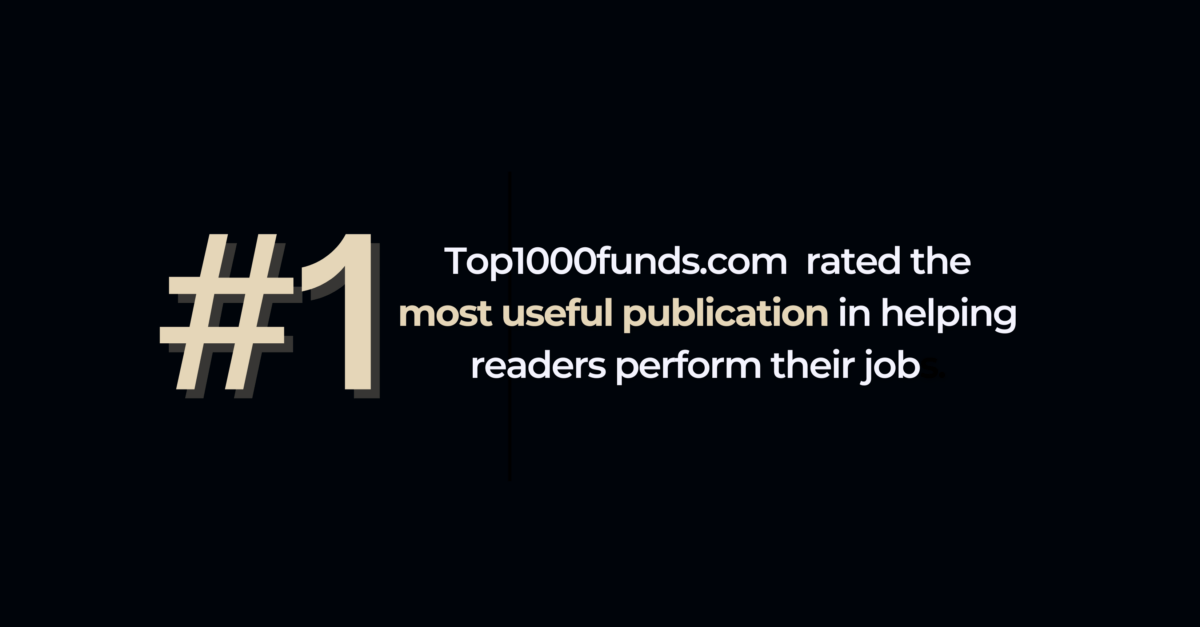A new paper by Focusing Capital on the Long Term (FCLT Global) gives asset owners and managers practical advice on negotiating investment mandates that align with long-term goals.
The FCLT paper, Institutional Investment Mandates: Anchors for Long Term Performance, includes a top-10 list of recommendations for long-term mandates that covers fees, benchmarks, the term of the contract and performance reporting. It gives investors ideas for changing behaviours to better inform long-term thinking; for example, changing the frame of reference of performance reporting, and flipping the standard practice of listing short-term results ahead of longer-term outcomes.
Most of the changes are “common sense” and not very difficult, says Sarah Williamson, chief executive of FCLT Global, adding that the organisation’s membership is considering all of the recommendations and some have already been implemented.
“Most reports look at data in order of quarterly performance, then year to date, then one year, three years and so on,” Williams says. “By the time you get to five- or seven-year figures, it’s too many numbers to take in. One suggestion is to flip it and start with the seven-year performance number. [Doing it the other way] is just a habit, there’s no reason for it.”
Williamson said one of the challenges for the industry is to change these habits and incentives to better align practices with the long-term strategic goals.
“There are incentives, habits and behavioural finance mistakes or tricks played by our mind that lead to short-term behaviour. How do you poke, tweak, nudge each of those?” she says. “Long-termism is interesting to me – everyone wants it, they just have a hard time doing it. Our role is to help people address these habits. My hope is asset owners and managers read this, think about it and ask themselves, ‘Are we setting up investment structures that lead to and support long-term performance?’ If you have long-term liabilities or obligations, it is intuitive, almost obvious, to invest long term. If you have those obligations why would you invest short term? We need to turn the question on its head. The default should be long term, and then if there is a reason [to do otherwise] that’s OK.”
The paper suggests a number of areas for institutional investors to focus on as they negotiate mandates with their managers.
These includes asking:
Do the agreement’s incentives support a long-term relationship. For example rather than tying fees to assets under management, have terms that lock in asset owners for longer in exchange for fees that decline over time.
Does the communication from the manager concentrate undue attention on short-term results?
Is the focus on leading or lagging indicators of performance?
Do the mandate terms reward long-term investing and mitigate common ‘buy high’ and ‘sell low’ patterns of chasing performance?
The paper states that longer-term investment contract provisions can help asset owners and managers focus on the long term. Their long-term behaviour can then translate across the investment value chain to influence corporate behaviour around business and capital allocation, and ultimately help foster improved economic growth.
Some of the other areas of exploration the paper raises include: continuing to report a manager’s performance after it has been terminated and so observing its longer-term performance; using alternative benchmarks that explicitly incorporate long-term thinking; constructive dialogue on portfolio managers’ personal incentives; and performance reporting that considers the economic indicators of portfolio companies alongside financial returns.
“People want to be long term but both asset managers and asset owners are shifting the blame,” Williamson says. “Asset managers say they have a long-term strategy but are afraid if they underperform in shorter time periods they will get fired by the asset owner. The asset owner says the asset manager has a different time horizon to them. Both are shifting the blame. But long-term investing is in both parties’ best interest.”
Building new patterns of behaviour and processes into the institutional investment mandate could provide the discipline required for both parties to change from a desire to act, to acting long term.



